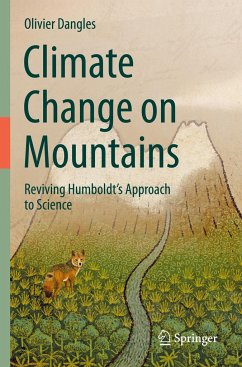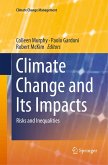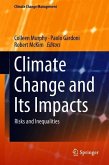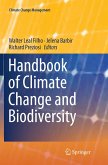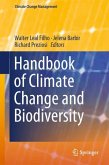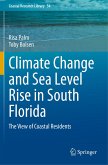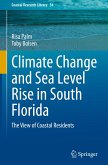The world is warming up rapidly and this change is most noticeable in mountains with already observable consequences on flora and fauna. This book presents concepts, methodologies and major achievements of recent research in climate change ecology in mountains by placing this research in a historical perspective, that of travelers and naturalists of the Romantic era, and first of all Alexander von Humboldt.
There is now a renewed interest, both in academia and beyond, in Humboldt, his writings and his view of nature. But how can we actually make use of his writings? How can we put his philosophy into practice? How can we still learn from past scientific figures and do a better science today?
In this book, the author presents how it is possible to succeed in modern science by returning to sources, by renewing the tradition of past polymaths such as Humboldt, and by having a fully humanistic approach in science. He illustrates his point based on his 15-year experience inthe study of the ecological effects of climate change in the tropical Andes, showing how he has incorporated approaches from other disciplines, from different branches of science, from history and the arts to achieve a more comprehensive view of his scientific field. Alongside hard data, discoveries by past naturalists build our understanding of the world but appealing to our emotions makes us want to understand it. In the author's view this is a productive and enjoyable way of doing science that speaks to our humanity and also increases our knowledge about nature.
This academic cross-over book appeals to a broad audience of students, scientists or, supported by attractive illustrations, to anyone interested in the adventure or making of science, but not necessarily with a scientific background.
There is now a renewed interest, both in academia and beyond, in Humboldt, his writings and his view of nature. But how can we actually make use of his writings? How can we put his philosophy into practice? How can we still learn from past scientific figures and do a better science today?
In this book, the author presents how it is possible to succeed in modern science by returning to sources, by renewing the tradition of past polymaths such as Humboldt, and by having a fully humanistic approach in science. He illustrates his point based on his 15-year experience inthe study of the ecological effects of climate change in the tropical Andes, showing how he has incorporated approaches from other disciplines, from different branches of science, from history and the arts to achieve a more comprehensive view of his scientific field. Alongside hard data, discoveries by past naturalists build our understanding of the world but appealing to our emotions makes us want to understand it. In the author's view this is a productive and enjoyable way of doing science that speaks to our humanity and also increases our knowledge about nature.
This academic cross-over book appeals to a broad audience of students, scientists or, supported by attractive illustrations, to anyone interested in the adventure or making of science, but not necessarily with a scientific background.

